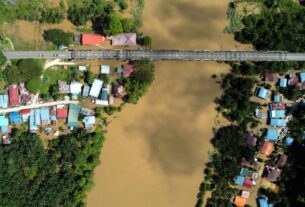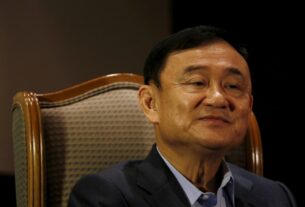Australian Prime Minister Anthony Albanese met with President Donald Trump in Washington today, marking a significant step in reinforcing Australia’s position on the global stage. The talks focused on two vital issues — securing U.S. support for the AUKUS submarine deal and promoting Australia as a trusted supplier of critical minerals, which are essential for high-tech industries and global security.
Albanese highlighted Australia’s rich reserves of lithium, cobalt, manganese, and rare earths, positioning the country as a reliable alternative to China in the global supply chain. His message was clear — Australia is ready to help the world loosen its dependence on China’s control over critical minerals used in semiconductors, electric vehicles, defence technology, and renewable energy systems.
“We want to be a positive, reliable partner in building a stable and sustainable global economy,” Albanese said before the meeting, expressing optimism for a “constructive and forward-looking” dialogue.
In April, the Prime Minister announced plans for a strategic critical minerals reserve, aimed at supplying key allies like the United States. This move aligns closely with Washington’s goals to reduce strategic vulnerabilities and strengthen Western partnerships in the face of rising tensions with Beijing.
Meanwhile, Treasurer Jim Chalmers emphasized Australia’s readiness to engage globally. Speaking in Washington, he noted, “Australia has a lot to offer the world. We are determined to be a dependable supplier to meet critical minerals needs here in the U.S. and beyond.”
However, challenges remain. The U.S.-China trade dispute and the tariff tensions — including a 10% levy on Australian goods — could affect trade stability. Trump’s fluctuating stance on China, especially regarding rare earths, continues to add uncertainty to global markets.
On the defence front, Albanese seeks Trump’s confirmation of commitment to the AUKUS agreement, a 2021 trilateral pact between Australia, the U.K., and the U.S. The deal includes the delivery of at least three Virginia-class nuclear-powered submarines to Australia within the next 15 years, strengthening its strategic presence in the Pacific. Estimated at nearly US$235 billion, AUKUS represents one of the most ambitious defence investments in Australian history.
Despite recent concerns that the U.S. may review AUKUS under its “America First” policy, Australian officials remain confident. Analysts believe reaffirming the deal is crucial — not just for Australia’s national security but also for maintaining balance in an increasingly polarized Indo-Pacific region.
Justin Bassi, Executive Director of the Australian Strategic Policy Institute, stated that AUKUS should be reaffirmed as “the foundation of Australia’s security and vital to U.S. interests in competing with a rising Beijing-led authoritarian axis.”
In essence, while the talks in Washington are about trade, minerals, and submarines, they represent something far more profound — a shared vision between allies determined to safeguard stability, independence, and peace in an unpredictable world.
This visit by Prime Minister Albanese is not just about policy; it’s about people, partnerships, and purpose — the very foundations of diplomacy that remind us why collaboration remains humanity’s strongest weapon in an ever-changing global landscape.




